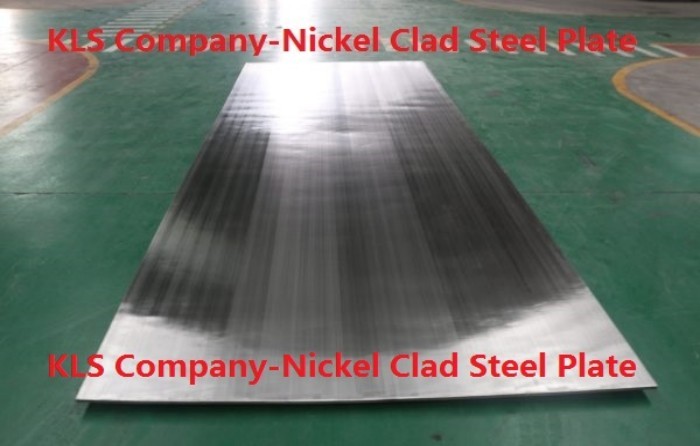What is nickel clad steel?
Nickel clad steel is a composite material that combines the corrosion-resistant properties of nickel with the strength and durability of steel. This unique combination makes it a popular choice for various industries where both corrosion resistance and mechanical strength are crucial. In this article, we will explore the composition, manufacturing process, applications, and advantages of nickel clad steel. Whether you're an engineer, researcher, or someone seeking information about this material, this article aims to provide a comprehensive understanding of nickel clad steel.
Composition of Nickel Clad Steel:
Nickel clad steel consists of two distinct layers: an outer layer of nickel and an inner layer of steel. Here are the key aspects of its composition:
a. Nickel Layer: The outer layer is made of pure nickel, which provides excellent corrosion resistance to a wide range of aggressive environments, including acids, alkalis, and seawater. Nickel has exceptional resistance to both oxidation and reduction reactions, making it highly suitable for various industries.
b. Steel Layer: The inner layer is typically made of carbon steel or stainless steel. The steel layer provides the required mechanical strength, durability, and structural integrity. Carbon steel is commonly used for general applications, while stainless steel offers enhanced resistance to corrosion and staining.

Manufacturing Process:
The production of nickel clad steel involves various methods, including electroplating and hot rolling. Here's an overview of the manufacturing process:
a. Electroplating: One method involves electroplating nickel onto the steel substrate. The steel surface is prepared through cleaning and etching processes, followed by the deposition of nickel through electrochemical reactions. This method allows precise control over the thickness of the nickel layer.
b. Hot Rolling: Another method involves the hot rolling process. In this process, a nickel plate is bonded with a steel plate under high temperature and pressure. The two plates are heated until they reach the bonding temperature, and then they are compressed together. This method ensures a strong metallurgical bond between the nickel and steel layers.
Applications of Nickel Clad Steel:
Nickel clad steel finds numerous applications across industries where corrosion resistance and mechanical strength are essential. Some common applications include:
a. Chemical Processing: Nickel clad steel is used in equipment and components that come into contact with corrosive chemicals, such as vessels, tanks, and pipelines.
b. Oil and Gas Industry: The material is employed in offshore platforms, subsea equipment, and pipelines where resistance to seawater and aggressive environments is crucial.
c. Desalination Plants: Nickel clad steel is suitable for heat exchangers and piping systems in desalination plants, where it provides resistance to saltwater and chlorinated environments.
d. Automotive Industry: The material is used in automotive exhaust systems, providing corrosion resistance and durability in harsh operating conditions.
Advantages of Nickel Clad Steel:
a. Corrosion Resistance: Nickel clad steel offers excellent corrosion resistance, making it suitable for environments where steel alone would be prone to corrosion.
b. Cost-Effective Solution: By combining a layer of nickel with steel, the material provides cost savings compared to using solid nickel for the entire component.
c. Strength and Durability: The steel layer provides mechanical strength and durability, allowing nickel clad steel to withstand high loads and harsh operating conditions.
d. Versatility: Nickel clad steel can be tailored to specific application requirements by adjusting the thickness of the nickel layer and the type of steel used.
Conclusion:
Nickel clad steel sheet offers a unique combination of corrosion resistance and mechanical strength, making it an ideal material for various industrial applications. By combining the protective properties of nickel with the structural integrity of steel, nickel clad steel provides a cost-effective solution for environments where corrosion resistance is paramount. From chemical processing to the automotive industry, this composite material proves its versatility and reliability. Understanding the composition, manufacturing process, applications, and advantages of nickel clad steel can help engineers, manufacturers, and researchers make informed decisions when considering materials for their specific needs.
177
0
0


Comments
All Comments (0)